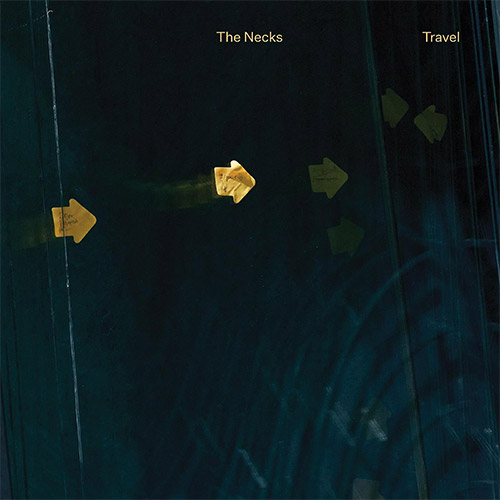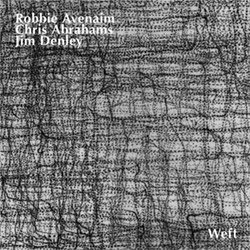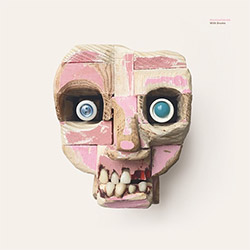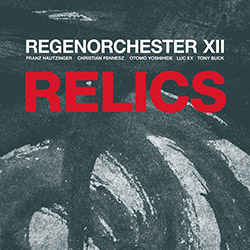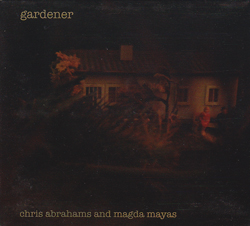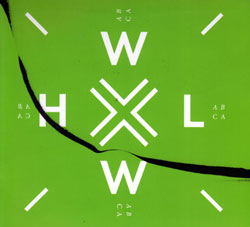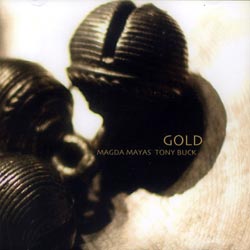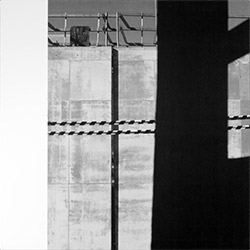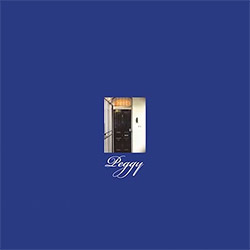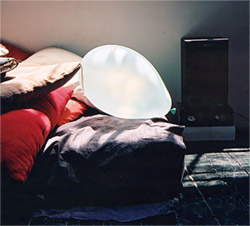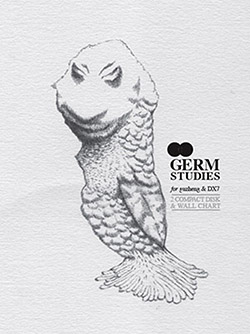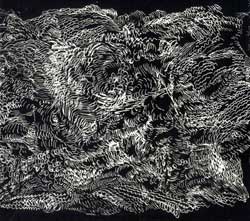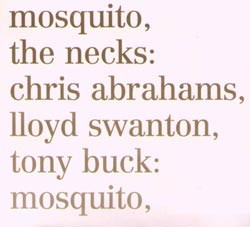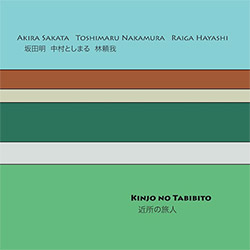
Starting each day in the Australian studio with a 20-minute improvisation, The Necks trio of Chris Abrahams on piano & keyboards, Tony Buck on drums and Lloyd Swanton on bass developed this, their 21st album, as a collection of "shorter" and varied improvisations, released with minimal overdubs to present their music closer to their exceptional live performances.
Save $1.70
In Stock
Quantity in Basket: None
Log In to use our Wish List
Shipping Weight: 2.00 units
Sample The Album:
Chris Abrahams-piano, keyboards
Tony Buck-drums, guitar
Lloyd Swanton-bass
Click an artist name above to see in-stock items for that artist.
UPC: 309272740097
Label: Northern Spy
Catalog ID: CD-NS-158
Squidco Product Code: 32943
Format: CD
Condition: New
Released: 2023
Country: USA
Packaging: Digipack
Recorded by Tim Whitten, Studios 301, Alexandria, Australia.
"Travel, the 19th studio album by Australian improvisational trio The Necks, documents their recent practice of starting each day in the studio with a 20-minute trio improvisation. The recordings offer some of their most ecstatic and captivating music cut to tape.
As bassist Lloyd Swanton puts it: "It's a really nice communal activity to bring us together in focus each day, and some lovely music has resulted from it." Although a straight "live" improvisation has never been recorded in the studio by the band, these tracks (save for some light overdubs and post-production) feel closest to their 30 years of celebrated live performances.
In 2017 Stephen O'Malley's Ideologic Organ label released the band's lauded Unfold, which first offered up this uncharacteristic studio work: four sub-20-minute pieces - instead of the typical 60+ minute arc for which the band is known - along with an obfuscated track list which leaves play order to the listener's hand. The album quickly sold out, and persists as a treasure in collections or as a high-priced 'Want' on Discogs."-Northern Spy
"Over 34 years, Australian trio the Necks --pianist / keyboardist Chris Abrahams, drummer/electric guitarist Tony Buck, and bassist Lloyd Swanton -- have forged a compelling, exploratory, singular musical language. Often categorized as a "jazz piano trio," they've essentially reinvented the configuration in their own image with some of the most captivating, yet difficult to categorize instrumental music. Travel follows 2017's Unfolded in offering four sidelong cuts spread across a double LP. This music -- impeccably recorded and mixed by longtime collaborator Tim Whitten -- documents the trio's recent rehearsal habit: They start each studio encounter by playing an extended improvisation for roughly 20 minutes. These recordings are some of those improvs played live-to-tape, then appended with minimal post production edits and overdubs.
"Signal," is initially straightforward but wanders wide. Swanton's incessantly repetitive double bass vamp is the anchor. Buck hovers behind, pairing ride cymbal and rim-shots while syncopating the rhythm. Abrahams explores Middle Eastern and North African modalism on piano, and on organ, layers nebulous chord voicings onto mysterious note clusters. He and Buck continually circle back to ground themselves in Swanton's vamp. The flow becomes intense as Swanton pulls out a bow, and Buck adds snare breaks.
"Forming" is a slow brooding burn. Its single piano chord foundation is broken up by Abrahams into individual notes before reconstructing it in alternating resonant tones and timbral combinations. Buck whispers, cajoles and encourages with fluttering tom-toms and cymbal washes. Swanton abstractly, combines harmonic drones with dark, taut chords. At nine minutes, Abrahams' right hand pointillistically vamps directly from them. He cascades around Buck's beats, creating an alternate, dynamic. "Imprinting" finds the players disguising the organic sounds of their instruments initially. As Buck builds a circular ceremonial pattern with low-tuned tom toms, Swanton's arco bass sounds akin to a muted cornet. Abrahams almost indecipherable electric piano notes slide in then commingle in a counter vamp of fat, shimmering chords, layered inside a noirish sounding Hammond B-3, producing a wealth of tonalities for the trio to investigate. Strangely, it resembles Jon Hassell's Aka/Darbari/Java: Magic Realism, and the latter half of Miles Davis's "Shh/Peaceful" simultaneously. Closer "Bloodstream" commences with an organ fugue over a seemingly breathing arco bass drone. Abrahams begins comping on piano, running through blues and modal postbop, then threads in a bounty of spooky, almost otherworldly organ. Buck enters at six minutes with thunderous, rolling snares. He drops out, allowing Abrahams to assert harmony, before the drum kit returns with thudding tom toms, and crisp, reverbed cymbals. Swanton adds electronic treatments to his droning bass. Buck's addition of a warmly distorted electric guitar adds ballast, texture and poignancy.
Despite the change in m.o. Travel is very much a Necks album and lines up seamlessly with the trio's vast catalogue. It blossoms with new ideas, fluid spontaneity and fresh ideas. For newcomers curious about the longstanding trio's music, Travel is a truly excellent place to begin."-Thom Jurek, All Music
Also available as a vinyl LP.Get additional information at All Music
Artist Biographies
• Show Bio for Chris Abrahams "Chris Abrahams was born in Oamaru, New Zealand but grew up in Sydney, Australia. He became very active in the Sydney jazz scene in the early eighties playing with modern jazz groups including Mark Simmonds' Freeboppers and The Keys Music Orchestra. With Lloyd Swanton he formed the 60's modern jazz-influenced The Benders in 1982. During its day, the band released three albums - E, False Laughter and Distance. In 1984 Chris recorded and released his first solo piano album - Piano, followed in 1986 by Walk. In 1985 Chris became a founding member of the Sydney indie rock band The Sparklers. As a result of this, Chris began working regularly with the singer and songwriter Melanie Oxley. Chris collaborated with Melanie, writing songs and producing albums, throughout the nineties. There are five releases with her: Resisting Calm (1990), Welcome to Violet (1992), Coal (1994), Jerusalem Bay (1998) and Blood Oranges (2003). Chris released a third solo piano album, Glow, in 2001. This was followed in 2003 by Streaming, and then Thrown (2004), Play Scar (2010) and Memory Night (2013). Chris has collaborated, in both recording and performance, with many contemporary improvising musicians including Burkhard Beins, Mike Cooper and Anthony Pateras. He performs regularly in the improvising music scenes both in Australia and Europe." ^ Hide Bio for Chris Abrahams • Show Bio for Tony Buck "Born in Sydney in 1962, Tony is regarded as one of Australia's most creative and adventurous exports, with vast experience across the globe. He has been involved in a highly diverse array of projects. Apart from The Necks, he is probably best known as leader of hardcore/impro band PERIL. Early in his musical life, after having graduated from the New South Wales Conservatorium of Music, he became very involved in the jazz scene in Australia, often touring with visiting international artists such as Vincent Herring, Clifford Jordan, Mickey Tucker, Branford Marsalis and Ernie Watts, as well as Australians Mark Simmonds, Paul Grabowsky, The catholics, Sandy Evans and Dale Barlow. Following time spent in Japan, where he formed PERIL with Otomo Yoshihide and Kato Hideki, Tony moved to Europe, and has involved himself in many projects there, including the development of new "virtual" MIDI controllers at STEIM in Amsterdam. Tony has played, toured or recorded with, among others, Jon Rose, Nicolas Collins, Tenko, John Zorn, Tom Cora, Phil Minton, Haino, Switchbox, The Machine for Making Sense, Ne Zhdall, The EX, Peter Brotzmann, Hans Reichel, The Little Red Spiders, Subrito Roy Chowdury, Clifford Jordan, Kletka Red, Han Bennink, Shelley Hirsch, Wayne Horvitz, Palinckx, and Ground Zero." ^ Hide Bio for Tony Buck • Show Bio for Lloyd Swanton "Described by Billboard Magazine as "an outstanding and imaginative Australian bassist and composer", Lloyd Swanton was born into a large and musical family in Sydney in 1960. His long-running group, The catholics, has released eight albums, all produced and predominantly composed by him, with three receiving ARIA Award nominations. Their album Simple was nominated for the German Deutsche Schallplattenkritik Award. His 12-part suite Ambon, drawing from his uncle Stuart's secret diary kept whilst a prisoner of war in World War II, had its premiere in 2015, and is now released as a double CD. Overseas exposure in nearly 40 countries with numerous groups includes countless performances throughout Europe, Canada, the USA, Mexico, India, Cuba, New Zealand, Taiwan, South Korea, Russia, Indonesia, Thailand and Japan. For fourteen years, Lloyd Swanton hosted Mixed Marriage, a very popular radio program which examined crossings of jazz with other musical styles, on Eastside Radio in Sydney. In his spare time, Lloyd is an avid follower of Australian Football, and a keen collector of Australian Aboriginal art, ice crushers, modernist ceramics, and books on Fellini. He is also gathering historical information on his distant ancestor Theodore Deck, a leading name in 19th Century French ceramics." ^ Hide Bio for Lloyd Swanton
4/17/2024
Have a better biography or biography source? Please Contact Us so that we can update this biography.
4/17/2024
Have a better biography or biography source? Please Contact Us so that we can update this biography.
4/17/2024
Have a better biography or biography source? Please Contact Us so that we can update this biography.
Track Listing:
1. Bloodstream 18:38
2. Imprinting 17:14
3. Signal 20:50
4. Forming 20:10
Improvised Music
Jazz
Free Improvisation
The Necks
Australian Improvisers, Composers and Experimenters
Staff Picks & Recommended Items
New in Improvised Music
Search for other titles on the label:
Northern Spy.


